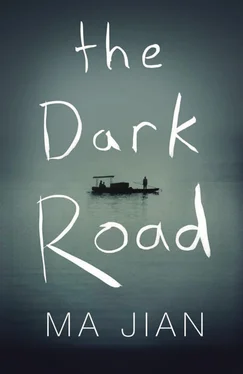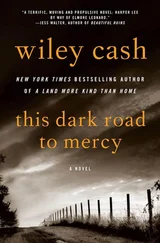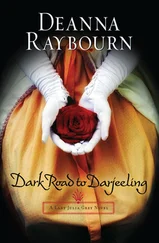‘Last year, when I suggested we should leave Nannan with my mother and go south to find work, you said: No, we can’t leave home because Confucius said, “While your parents are alive do not travel afar.” You’re always contradicting yourself.’
Kongzi gets up and drives the boat back to the bank. Above the wharf, a single light bulb shines down on three bare-chested men who are leaning on a green billiard table smoking cigarettes. ‘You know very well that if we returned to the village now, we’d be finished,’ he says. He manoeuvres the boat into its mooring then sits down and takes another gulp of beer. ‘Half of these houseboats are occupied by family planning fugitives like us. We’re safe. The authorities won’t bother us. Next week I’ll find you a midwife.’
‘There’s no need. That pregnant woman who has three daughters told me she’s attended many births, and has offered to help me when my time comes… Stop drinking that cheap beer. If it’s fake, you’re going to get very sick.’ She turns down the radio Kongzi salvaged from the Cultural Centre, then leans over to scratch the mosquito bites covering his legs. ‘If we had a fridge, we’d be able to save the rest of the watermelon for tomorrow,’ she sighs.
‘As soon as I get my next wage, I’ll buy a mini generator and an electric heater,’ Kongzi says, proud that he’s now able to provide for his family. Yesterday, he bought four ducks and put them in the bamboo cage. This dilapidated boat has offered them the possibility of a better future.
‘No, let’s buy a television first. It’s so quiet here at night, I can hear every thought passing through my head.’ Meili lies down on her back next to Kongzi and stares at her bulge. ‘What if it’s a girl?’ she says. ‘I warn you, I won’t get pregnant a third time.’ Feeling her circulation become restricted, she turns onto her side and rests her swollen feet on Kongzi’s legs.
‘If it’s a girl, we’ll keep her. Then, when I’ve made enough money, we’ll buy a bigger boat, with two cabins, sail downriver and try again for a boy. No one will be able to stop us.’
‘You really think so? The land is controlled by the land police and the rivers by the river police. We can never escape the government’s claws.’ A smell of duck shit wafts up from the cage below and she wrinkles her nose in disgust.
‘The river police only collect navigation fees and check licences. They don’t deal with family planning crimes.’
‘But we can’t live like this for ever. Your parents need us. They shouldn’t be having to chase pigs around the yard and rake up chicken shit at their age.’ Under the bamboo stool beside her is a bag containing a towel, two muslin cloths, and a tiny vest and pair of shorts, ready for Happiness’s arrival. Knowing that she’ll be preoccupied after the birth, she has already made the small quilt Happiness will need in the winter. She’d like to light a candle now and begin sewing a baby jacket, but fears it might attract more mosquitoes.
‘All I miss about the village is the school,’ Kongzi says. ‘I miss standing in front of my class and delivering a lesson. My throat is dry from lack of use.’
Meili feels a pang of sympathy for him. To protect their family, he’s had to give up his vocation. Scratching his bitten calves with her toes, she says, ‘Let me sing you a song to cheer you up, then. Darling husband, we shared our home and the household expenses, trod the same floorboards, slept in the same bed. My head next to yours on the pillow — how happy I was! Now, alone under my single sheet, I roll to the left and weep, then roll to the right and sigh… ’
‘Don’t sing me a funeral lament!’ Kongzi says, flicking his cigarette stub into the river. ‘It’ll bring us bad luck. Besides, your grandmother’s songs belong to the past.’
‘It’s supposed to be bad luck to bring a woman on board a boat, so why not throw me into the river if you’re so superstitious!’ Meili’s grandmother is a small, fragile woman whose forehead is pockmarked from childhood measles. When she was thirteen, and Nuwa County was gripped by famine, her destitute parents sold her for just half a bag of rice and a bamboo lute to the aged caretaker of Nuwa Temple. A year later, the old man married her. He taught her traditional opera and let her sing at every temple ceremony. At twenty, she learned the art of funeral wailing from a singer called Old Lady Wu, and became so proficient that her fame spread throughout the county. Meili remembers watching her stand before crowds of grievers wearing a turban of white mourning cloth, and unleash agonised high-pitched laments with tears streaming down her face. It was considered a mark of prestige for a family to have her sing at a wake. ‘The songs my grandmother taught me are beautiful,’ Meili says to Kongzi. ‘Her voice has cracked, so I’m the only one in my family who can sing them now. All right, if you don’t want a funeral song, here’s a Deng Lijun ballad instead: If I forget him, I’ll lose my way. I’ll sink into misery …’ When she finishes the ballad, she rolls onto her back again, bends her knees and waves a fan over her face. ‘I blush with shame when I have to tell people you work on a demolition site. When you were a teacher, I could hold my head up high.’
‘It wasn’t such a great job. The salary was pitiful.’
‘But I was the wife of a teacher. I had status. I didn’t care how much you earned.’
‘Before we married you said you’d love me even if I were dirt poor. I was manager of the Sky Beyond the Sky Hotel at the time. Is that what impressed you?’
‘That miserable job? Ha! One day, I’ll set up my own business and show you what a real manager is. I never did understand why Teacher Zhou closed the hotel in the end.’
‘He couldn’t attract enough people. I advised him to start breeding crabs in the hotel pond to make some money on the side, but he said if we did, the guests wouldn’t be able to swim in it.’
They fall silent. The only sound they can hear is the rumble of trucks on a distant mountain road, transporting cement to the construction site of the Three Gorges Dam.
‘I do still love you, Kongzi,’ Meili says at last. ‘But when you changed my name from “Beautiful and Pretty” to “Beautiful Dawn” you promised that our marriage would be the beginning of a wonderful new life.’
‘You regret me changing your name? But it’s so much more poetic. I promise you, Meili, a beautiful dawn is waiting for us.’
‘I never imagined that being pregnant could be so terrifying. Last night I dreamed that the baby had become frozen solid. I put it under a light bulb to warm it up, then I was afraid someone might see it, so I wrapped it in toilet paper and hid it in a drawer. I walked away and forgot all about it, and when I next opened the drawer I discovered it had suffocated to death.’ Meili’s eyes fill with tears.
‘Don’t cry, my dear wife. Everything will be all right. I give you my word: if this one’s a boy, we won’t try for a third. Let me feel your belly. My goodness. It’s so large now. So hard.’
‘I’m sure the baby is bigger than Nannan was at this stage. Stronger, too. Look at all the purple lines around my tummy button. Let’s not have a third, even if Happiness is a girl. We need to get on with our lives.’ Kongzi slides his hand down between her legs and she slaps it hard with the tip of her fan. ‘Don’t touch me! I’m boiling.’
When Kongzi came back late last night he confessed that he’d been to see a porn movie in the video parlour boat docked near the wharf. He said he couldn’t help himself because she hadn’t let him touch her for weeks. Meili knows that those films feature men and women making love in the nude. She’d always considered Kongzi to be a respectable man, and the knowledge that he’d watched porn movies in a grubby video parlour lowered him in her estimation.
Читать дальше












